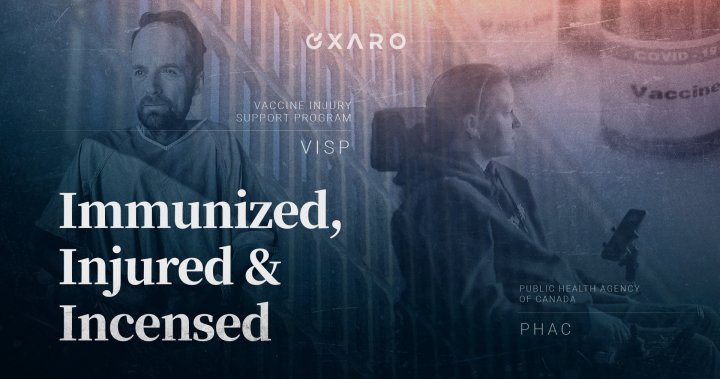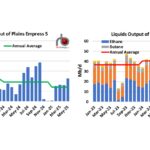In Vancouver’s West End, the cherry blossoms have burst into their annual pink splendor, but Joanne Mayer doesn’t notice them much these days. Three years after receiving her COVID-19 vaccine, the 54-year-old former nurse spends most days inside her apartment, managing chronic fatigue and neurological symptoms she attributes to her vaccination.
“I used to run marathons,” she tells me, showing a photo of herself crossing a finish line in 2019. “Now walking to the corner store feels like climbing a mountain.”
Mayer is one of hundreds of Canadians who have applied to the federal Vaccine Injury Support Program (VISP), launched in June 2021 to provide financial support to people who experience serious adverse reactions to vaccines administered in Canada. But like many applicants, she’s still waiting for her claim to be processed.
Now, a federal audit of the program has triggered a formal inspection of Oxaro, the third-party administrator handling claims. The audit revealed concerning gaps in documentation, inconsistent processing times, and questions about site visits that may never have occurred.
“They told me someone would come to assess my condition in person,” Mayer says. “I waited for months, rearranged my medical appointments, but no one ever showed up.”
According to documents obtained through access to information requests, the audit found that Oxaro failed to conduct required site visits for numerous claimants, despite billing the government for these services. The Public Health Agency of Canada (PHAC), which oversees the program, confirmed that inspectors are now reviewing Oxaro’s operations following the audit’s findings.
Dr. Allison McGeer, an infectious disease specialist at Mount Sinai Hospital in Toronto, emphasizes that adverse events following immunization are extremely rare, but acknowledges the importance of supporting those affected.
“The science is clear that vaccines are overwhelmingly safe, but no medical intervention comes with zero risk,” McGeer explains. “Having a robust, responsive compensation program is an essential part of public health ethics.”
The VISP was modeled after Quebec’s provincial program, which has operated since 1985. Prior to the pandemic, Canada was the only G7 country without a national vaccine injury compensation program. When COVID-19 vaccines were authorized for emergency use, establishing such a program became a priority.
But the implementation has been problematic. The audit revealed that of the 2,061 claims received between June 2021 and December 2023, only 404 had reached a determination, with just 131 approved for compensation. Most applicants have been waiting over a year for decisions.
In a small support group that meets weekly at a community center in East Vancouver, I meet five VISP applicants sharing similar stories of bureaucratic hurdles and delayed responses.
“The burden of proof falls entirely on patients who are already struggling with health issues,” says Martin Chen, a 41-year-old teacher who developed myocarditis after his second vaccine dose. “I’ve submitted over 300 pages of medical documentation, and still they ask for more.”
Health Canada statistics show that serious adverse events occur in approximately 0.011% of all COVID-19 vaccinations. While rare, these cases represent real people facing medical, financial, and often psychological challenges.
The program’s administrative costs have also raised eyebrows. According to the Treasury Board of Canada, Oxaro received $20.4 million to administer the program over three years, yet only $7.2 million has been paid out to claimants during that period.
“We’re spending more on bureaucracy than on helping injured people,” says Amir Attaran, professor of law and medicine at the University of Ottawa. “That ratio should trouble anyone concerned with program efficiency.”
The most disturbing finding from the audit involves potential fraudulent billing for assessment services. In at least 40 cases, Oxaro allegedly billed for medical assessments that claimants say never occurred. PHAC has now appointed independent reviewers to investigate these discrepancies.
When I contacted Oxaro for comment, spokesperson Michelle Fernandez provided a written statement: “We are cooperating fully with the review process and remain committed to administering this program with integrity and compassion.” She declined to address specific allegations about site visits or processing delays.
For people like Diane Williams, a 67-year-old grandmother from Victoria who developed Guillain-Barré syndrome following vaccination, the program’s shortcomings feel personal.
“I believe in vaccines,” Williams tells me as we sit in her garden. Her hands tremble slightly as she pours tea. “I got vaccinated to protect my grandchildren. But when something went wrong, I felt abandoned by the very system I trusted.”
Dr. Caroline Quach, chair of the National Advisory Committee on Immunization, stresses that acknowledging rare vaccine injuries is compatible with promoting vaccination.
“Transparency builds trust,” she says. “When we have systems that properly care for those who experience adverse events, it actually strengthens public confidence in immunization programs.”
As Health Canada’s inspection of Oxaro continues, advocates call for greater transparency and efficiency. The Vaccine Injury Alliance, a newly formed patient advocacy group, has requested that claim processing be moved in-house to PHAC to reduce administrative costs and increase accountability.
Back in her apartment, Joanne Mayer shows me her latest letter from VISP—another request for additional medical documentation. The cherry blossoms visible through her window will have fallen long before she receives a decision.
“I’m not anti-vaccine,” she emphasizes before I leave. “I just want the system to work the way it promised. We need to do better than this.”






